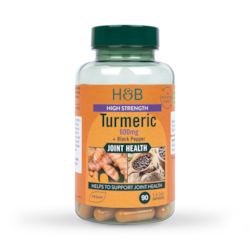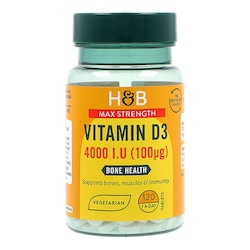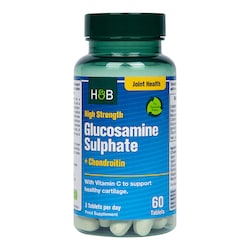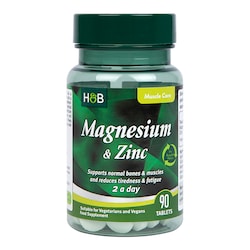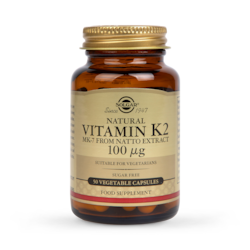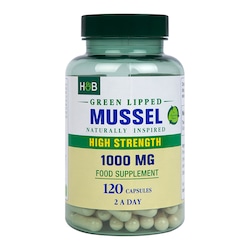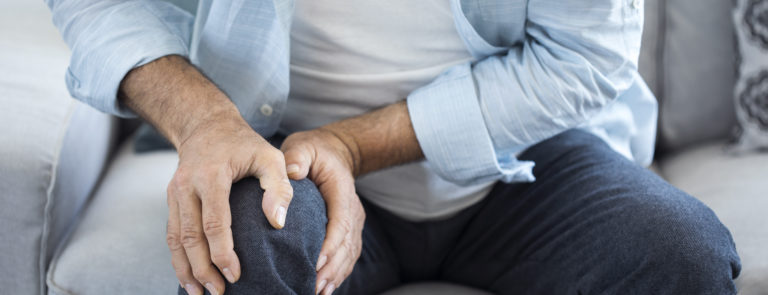20% off £30
Code:QUICK
Devil’s claw: benefits, dosage & side-effects

Devil’s claw is a plant used for joint pain. It also has other health benefits. Discover what these are, how much you need as well as side effects here.
Summary
1Devil’s claw plant
The plant is named after its fruit, which is covered in spikes that resemble the talons on a claw (quite a devilish one, apparently!). More info...
2 What is devil’s claw used for?
The British Herbal Medicine Association (BHMA) says that devil’s claw can be used as a traditional herbal medicine to relieve backache, rheumatic...
3What are the side-effects of taking devil’s claw?
Side-effects of devil’s claw are unusual, but those that have been reported include: Stomach ache, Diarrohea, Vomiting, Coughing...
What is devil’s claw?
Devil’s claw, scientifically known as Harpagophytum procumbens, is an African plant mainly used to ease joint pain – including back pain – muscular and rheumatic pain and general aches.1
You can find devil’s claw in teas, tablets and capsules. It’s also available in beauty products such as herbal bath soaks, gels and massage oils.
Devil’s claw plant
The plant is named after its fruit, which is covered in spikes that resemble the talons on a claw (quite a devilish one, apparently!).
More info:2
- Scientific name: Harpagophytum procumbens
- Plant family: Bignoniaceae family (sesame)
- Other names: Wood spider, grapple plant, WS 1531, iridoid glycoside
Devil’s claw root
However, it’s actually the root that tends to be dried out, powdered, and used in remedies.
One of this root’s most potent active ingredients is iridoid glycosides - a group of compounds thought to be responsible for its beneficial effects.

What is devil’s claw used for?
The British Herbal Medicine Association (BHMA) says that devil’s claw can be used as a traditional herbal medicine for the relief of backache, rheumatic or muscular pain, and general aches and pains in the muscles and joints.4
Summary
- Devil’s claw is a claw-like plant that has been used as a traditional herbal medicine to ease rheumatic pain, including joint, muscle and back pain
- Devil’s claw extract is made from the root of the plant, and contains several active ingredients, including iridoid glycosides, which has been shown to have beneficial properties
3 proven benefits of devil’s claw
Studies have found the plant could tackle a number of common complaints, such as:
It is estimated that most adults will experience lower back pain at some point or another in their lives, and often becomes a burden.7
With its potential to ease pain in certain parts of the body, devil’s claw has been studied to test its ability to reduce lower back pain.
A 2016 review of 10 different trials, on over 2,000 people, concluded that devil’s claw was more effective than a placebo at reducing lower back pain. However, the researchers called for more trials to be carried out, testing devil’s claw and other herbal medicines against conventional treatments.8
Handpicked content: How to stretch the lower back
Rheumatic diseases affect muscles, joints, tendons, ligaments and bones. Most rheumatic conditions are caused by immune system attacking itself and other body tissues.
The causes aren’t fully understood, but it could be down to genes, external factors like pollution or other things that could cause infections.
One 8-week study on the effectiveness and safety of devil’s claw in 259 patients with general rheumatic disorders gathered promising results. The patient’s experienced statistically significant improvements in:9
- Patient’s assessment of reduced global pain, stiffness and function
- Reduced pain scores for wrist, hand, shoulder, elbow, knee, hip and back pain
Generally, their quality of life improved and 60% of patients either reduced or stopped some of their pain medication.
Unlike the majority of rheumatic diseases, osteoarthritis is linked to damage to the cartilage that cushions the end of your bones. It usually affects the hips, knees, lower back, neck, feet and fingers.
Versus Arthritis, the UK’s leading arthritis research charity, says ‘evidence suggests that devil’s claw may be as effective as conventional medicines for osteoarthritis.10
A study published in the journal Phytomedicine in 2002 found that patients with hip or knee arthritis taking a supplement containing devil’s claw over eight weeks saw a 54% and 39% improvement respectively in their pain levels.11
- The proven benefits of devil’s claw include the reduction of lower back pain, rheumatoid pain and osteoarthritic pain
How much devil’s claw is safe to take?
Herbal preparations vary, so make sure you follow the recommendations on any product packaging or labels.
What are the side-effects of taking devil’s claw?
Side-effects of devil’s claw are unusual, but those that have been reported include:17
- Stomach ache
- Diarrohea
- Vomiting
- Coughing
- Headache
- Vertigo
- Allergic reactions
- Heart disorders
- Diabetes
- Gallstones
- Stomach ulcers
Although the more serious side effects are very rare, it is advised that you talk to your doctor or a trained medical herbalist before using devil’s claw.
Be aware that it can also interact with certain medications, such as anticoagulants, painkillers, heart drugs and medication for stomach ulcers.18

Summary
- Devil’s claw is considered safe for most people, but mild side effects like headaches, diarrohea and more severe side effects like stomach ulcers have been reported on rare occasions
The final word
- Devil’s claw is a plant with a claw-like appearance
- It’s been used as a traditional herbal medicine to ease rheumatic pain, including joint, back and muscle pain for many years
- Devil’s claw extract is made from the root of the plant
- The roots contain several active ingredients, including iridoid glycosides,
- The benefits of devil’s claw include the reduction of lower back pain, osteoarthritic pain and rheumatoid pain
- Devil’s claw is considered safe for most people, but mild side effects like headaches, diarrohea and more severe side effects like stomach ulcers have been reported (but they are very rare)
The advice in this article is for information only and should not replace medical care. Please check with your GP or healthcare professional before trying any supplements, treatments or remedies. Food supplements must not be used as a substitute for a varied and balanced diet and a healthy lifestyle.
Last updated: 3 June 2021
- https://www.encyclopedia.com/medicine/encyclopedias-almanacs-transcripts-and-maps/devils-claw
- https://www.versusarthritis.org/about-arthritis/complementary-and-alternative-treatments/
- https://www.ncbi.nlm.nih.gov/pubmed/22414102
- https://bhma.info/indications/muscle-back-joint-pain/devils-claw/
- https://www.ncbi.nlm.nih.gov/pubmed/22414102
- https://www.sciencedirect.com/science/article/pii/S0378874112005387
- https://www.ninds.nih.gov/Disorders/Patient-Caregiver-Education/Fact-Sheets/
- https://www.ncbi.nlm.nih.gov/pubmed/26630428
- https://pubmed.ncbi.nlm.nih.gov/17886223/
- https://www.versusarthritis.org/about-arthritis/complementary-and-alternative-treatments/types-of-complementary-treatments/devils-claw
- https://www.ncbi.nlm.nih.gov/pubmed/12046857
- https://www.encyclopedia.com/medicine/encyclopedias-almanacs-transcripts-and-maps/devils-claw
- http://archive.foundationalmedicinereview.com/publications/13/3/248.pdf
- https://www.sciencedirect.com/science/article/pii/S0378874112005387
- https://www.ema.europa.eu/documents/herbal-monograph
- https://www.ema.europa.eu/documents/herbal-monograph
- https://medlineplus.gov/druginfo/natural/984.html
- https://www.versusarthritis.org/about-arthritis/complementary-and-alternative-treatments/



